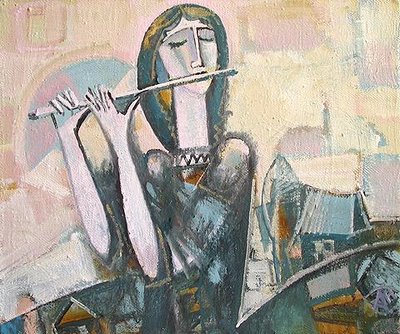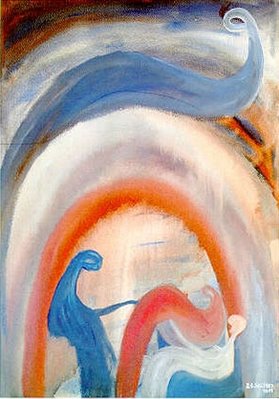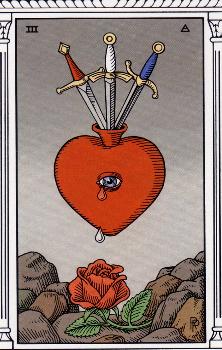Are You Orpheus?

“…Produced by Morton Anal, Jr. Photographed in SpermoVision, a Division of Napalm Industries. Recorded by Sucktone, a Division of Sodom Chemicals, in association with Napalm Industries, a Division of Anal petroleum jelly. A Napalm-Anal release. Certified ‘X’ For Mature Audiences Only.
Listen, said Underground.
No one listened. The chill rose up from the black tunnels.
Are you there? Said Underground. Will you answer?
No one answered.
Are you Orpheus? Said Underground.
No answer.”
What did it mean that whole don’t look back thing? Then of course he looks back and she is gone, the one he waited for, the one taken from their wedding festivities, the one the beauty of his song has won him chance to reclaim, gone? I mean there is a recurring theme within Trickster myths of the figure (Coyote, Rabbit, Raven, Legba, Loki, Eshgal etc) being given a strict set of instructions and then failing to live up to a crucial point and then lo and behold grief has come upon him. Sometimes grief falls upon all of humanity as result, rather like some tragi-comic version of the Fall from the Garden, I can think of one example from Lewis Hyde’s wonderful treatment of these myths whereby Coyote has been instructed to follow an invisible spirit, a ghost, how to find the tribe of the dead whereby he meets his wife and friends again. He is allowed to leave with his wife as long as he does not touch her for 5 days, of course as the days go by she gets more and more vibrant and, well you guessed it.
The friskiness of the trickster deity brings upon all of humanity the lack of capacity to interface meaningfully with the dead, causing loss to all subsequent generations. If as Steiner suggested relations with the Dead are central to a healthy psychology in the present then this is a big loss. Yet for all the similarities in the stories there is a very different feel, Coyote’s mission and ultimate failure as a kind of Brer rabbit on acid feeling, it is more Simpsons than ‘Love Story’ if you follow. Orpheus on the other hand is earnest, an artist that has dared to charm the Lord of the Underworld in order to reclaim the unnatural loss of his bride on his wedding night (chased by a Centaur she is bitten by a snake and falls...). His story in modern film form would have the audience sobbing; this is the end of the ‘English Patient’ territory, a desperate man seeking the life of she whom he loves. I remember as a small boy being very angry and upset at Orpheus; I was shouting at him, ‘why did you look back?’ I mean Pluto had only given one condition (deliberately to entrap, to get him thinking…like a man saying don’t think of pink elephants of course you cannot help but…the ultimate cheat?). I was very disturbed by the story of Orpheus age seven. I could not understand why he would do that. Why?

Orpheus is not just a Trickster even though the failing the key instruction links him to these ever backfiring creatures. He is a symbol of the maker of art within a human. To be disturbed by his story implies a resonance of that story with something in one’s own life, or psyche. Orpheus resonates, his song touches (teaches the animals their true ear sings Rilke) he resounds across the ages. To a boy in a Cheshire village who had nothing else to do than to read Greek myths and fall in love over and over with the nymphs (who would not want a girl that lives in a tree or a stream?) and suffer as the heroes suffer, and suffer, and be angry that Orpheus would lose. It felt like a loss, both in the sense that he lost her but also that he played the game and he lost. He lost it. A shocker for a young boy! For the boy the tales of Hercules were much easier to take, the Thracian lion tamed and worn as trophy now there’s the stuff of legend huh? Yet it was the failure of Orpheus to stop himself looking back at Eurydice that haunted this boy, not the filthy stables or the Hydra.
Am I Orpheus then? – To feel that hurt? Are you Orpheus? Said Underground, Hoban’s symbol of the mighty Hades, are you the singer of songs that will change this place? (Kleinzeit busks). Was he looking back to check she was ok? Did he mistrust the god who had claimed she would be safe? Certainly I mistrust the gods at times, the most powerful of inner urges can overpower me and quicken inside me to a point of feverish certainty and literally a few moments later I can be wavering again… Is he a man neurotically bound to the past? I mean was looking back to see her a symbol of those times we get stuck in a consciousness of regret, of past-binding, you know ‘I wish that had not happened’ ‘I wish that person had given me a chance to tell them how I feel’- was Orpheus, as many artists are, too bound by nostalgia, by the weight of the past? Is this a Remembrance of Singer’s Past? I do not know. Is it just a case that she was so beautiful to him and he was so focussed on his wedding night and then the loss (like Novalis night after night at the grave side writing) that he literally had to look back just to see her face, the beauty of her presence? I mean I have told myself I will not ring so and so and then have done, but here the stakes are so high, was one look worth the loss?
I mean is this the point? Actaeon pays a terrible price for looking upon the beauty of the Virginal bathing Moon, he is hunted for his vision. Is Orpheus the artist who can turn the woodland into temple, the herd into a temenos because that beauty, the beauty of turning and seeing was worth it? Is there a part of Orpheus that does not see any of this as a loss? Is it the heroic ego of the child in me that has lost it? Is it the limit of the rational that says why did you break the rules when the stakes are so high? Am I actually a man living in fear because I do not celebrate Orpheus and his particular form of seeing, a seeing around, a seeing backward and into the dark?
Song, you teach us, is beyond achievable desire,
From Sonnet to Orpheus 3, translated by Robert Hunter
Has Orpheus in fact stilled his longing? Or was this afterwards, was this the journey he took when he wandered after realizing what his longing had done, how it had destroyed her, the very one he loved and longed for? Was this is maturation in fact, his journey into manhood? Is Eurydice in this sense Anima, at her most elusive when grasped for by the aggressive male desire (most certainly a look can be aggressive in it’s wanting…)? For certainly she became the “air without object” when he looked, did he indeed look so hard that he saw right through her, that she became invisible, empty even of inherent existence?
“Kleinzeit didn’t want to get out of the train, there was no time there, nothing had to be decided. He dropped his mind like a bucket into the well of Sister. There was a hole in the bucket, it came up empty.”
I wonder was Orpheus beginning a journey into becoming a Zen Master, certainly from the point of view of this interested party he leaves a challenging koan in his tale of song and loss. Whatever you bring to that koan and I have far from exhausted those possibilities of this increasingly late night meander through the backwaters and eddies of Underground - you can see yourself in what you bring, you can see the possibilities of Self itself in all its multiple and yet interlinked forms. Like Zeno’s arrow the Self is always motionless and yet it is always moving to a destination. Something happened at the gates of Hell. Something in that look, in the journey to, and the journey from that look, something happened that changed Art and Consciousness in the West. Rilke knew this clearly and after the lengthy abstraction of the Duino Elegies he returned to sing the song of Orpheus, he who had given birth to song. Something about the look, the looking for, the looking into, the forbidden look. Whatever we conclude as to the meaning of the journey of Orpheus we must see that it brings us closer to the beating heart of things, the arterial rhythms of time, that like Orpheus is shattered by the look and wanders into nature to have his new found woundedness and heartfelt-ness contained so must we walk if we wish to emulate the meaning of the song. Even if you are only a sometime poet (and aren’t we all at least sometime poets?) you might wish to journey with Orpheus, with Kleinzeit or with Rilke into the deeper Life:
“Once more my deeper life goes on with more strength,
As if the banks through which it moves had widened out.
Trees and stones seem more like me each day,
And the paintings I see seem more seen into:
With my senses, as with the birds, I climb
Into the windy heaven out of the oak,
And in the ponds broken off from the blue sky
My feeling sinks, as if standing on fishes.”
Moving Ahead by Rainer Maria Rilke, translated by Robert Bly.
Mark Jones
Images: Orpheus (2004) by Nikolay Antonov, Hermes, Eurydice and Orpheus (2006) by Daniela Ovtcharova











